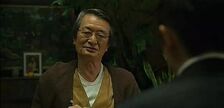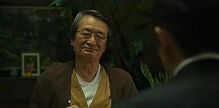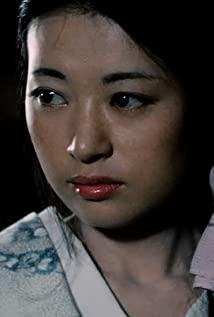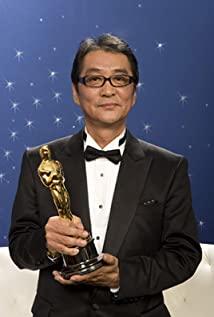After reading "The Undertaker", I was moved.
Kobayashi Daigo is a cellist, but he is not very skilled in his studies, and even the orchestra he worked for was disbanded, and he could not find his next home, so he had to bring his virtuous wife from the metropolis of Tokyo to the countryside of Yamagata Prefecture. Because of an accidental opportunity, he became an undertaker.
An entomber is a member of the funeral industry whose job is to prepare for the burial of the deceased after death. Including cleaning, dressing, grooming and so on for the deceased. Whether in China or Japan, it is an "unclean" profession. Although the income is high, it will be considered "dirty". For example, the celestial burial masters of the past dynasties in Tibet, even if they have cultivated into medical masters, have no choice but to live on the fringes of society. Naturally, when his occupation was known to everyone, Kobayashi Dawu was disliked by his friends and alienated by his wife.
From a musician who plays the cello in a suit, to the undertaker who accompanies the person on the last journey. Why did Xiaolin Dawu change from resisting to insisting on this profession? In addition to a trust and entrustment, I think it is more because he has experienced respect for life when facing death. A person, no matter how wonderful, sad, happy, or troubled his/her life has been, when death comes, everything he/she has will be put down, and eventually, like a newborn baby, he will leave empty-handed. And the family of the deceased, whether it is resentment or reluctance, blessing or grief, will inevitably face parting.
Death is a cultural ritual for every nation. How to treat "death" is how to treat "life". Only when there is reverence for life in the heart will the respect for death burst forth. Life cannot be controlled, but death can be changed. And letting the dead leave with dignity is the best tribute to them. And only by letting the deceased leave with dignity, glory, and peace, can the living have solace and be able to live better and calmly.
Therefore, the work done by the mortuary must face the final proposition of life.
At the beginning, like ordinary people, it was difficult for Xiao Lin to accept "death", and he could not accept the work of the mortuary. However, when he really did it, he began to slowly realize the value of cherishing—the cherishing of life. Cherish life, which is represented by the image of "eating" in this film. At the beginning, Kobayashi and the president sat in the car and ate the food provided by the family of the deceased after they had just settled the deceased. The president chewed without caring, while Kobayashi hesitantly sipped. When Kobayashi's wife, Mika, returned to her parents' house, Kobayashi and the president ate puffer fish in a beautiful green attic. At that time, he had just heard the story of the president, cherishing love for the dead, and the living enjoying the "embarrassingly delicious" taste of puffer fish. The two were mixed together. That was probably the first time he understood this. The true meaning of a job. And when Christmas Eve came, the three people in the funeral parlor gathered together and ate fried chicken legs. What kind of hearty feeling should be the epiphany after "suddenly looking back" - this is something you only understand after you have experienced "death". "Life" means "life" that is understood only after letting go of "death".
In contrast to death, it is life. Living people always have all kinds of longings: love parting, wishing and hating meeting, not begging...Families perform a single play in front of Xiaolin, and it is mixed. Even Xiaolin himself. It is also entangled in the abandonment of his mother and son by his father in his early years. Although he never shed a single tear in front of his mother when he was young, as an adult, he said bitterly to his wife that if he saw his father in the future, he would beat him severely. However, when Kobayashi finally confronted his father after many years, he was faced with his remains. What the father held tightly in his hands was not the joy of fireworks that confused people on the way, but the small stone given to his son when he was six years old. It was a deep apology and longing for his son, and a mistake for himself. Regret that cannot be turned back. The father, who abandoned his wife and children in his early years, finally lived his whole life in loneliness and poverty, guarding the address of his wife and children.
Kobayashi finally forgave his father.
From the bathhouse proprietress to the father, the film tells several stories from life to death. What is the course of life? At the beginning of the film, it was a snow field. Snowflakes are flying, making it impossible to see the sky or the road. Hisaishi's music is low-pitched and melancholy, accompanied by the vast snow and bright swans, which makes people even more meditative: only by taking death as a frame of reference, can people gain a far-reaching vision.
A friend of mine who was brilliant but died young. When he was seriously ill, he said this when talking about death: "If one day, my body leaves you, you should understand that I am still alive in your heart, and when you smile at me, I will also face you. Smile. When you are unhappy, you can tell me. I will always look at you with gentle eyes in the sky and encourage you. Years later you will die, then we will meet in the sky, then We will be together forever and ever."
As the crematorium said, death is a door, and life comes to the end, not the end, but the transcendence, to the next step. So, when death comes, say goodbye to them peacefully, because we will see each other in a long time. And when alive, live well and enjoy the gift of life. Just as Xiaolin was looking forward to the baby in his wife's womb when he bid farewell to his father, this is a new hope and a new cycle.
The friend who passed away, the last message to my friends is: "Thank you for your concern and support to my friends, everyone must live well, live happily, and live well. Thank you everyone."
When I am troubled by various things in life When I think of this passage, I can't help but ask myself: Do you feel the nostalgia for the life of the deceased?
View more about Departures reviews










